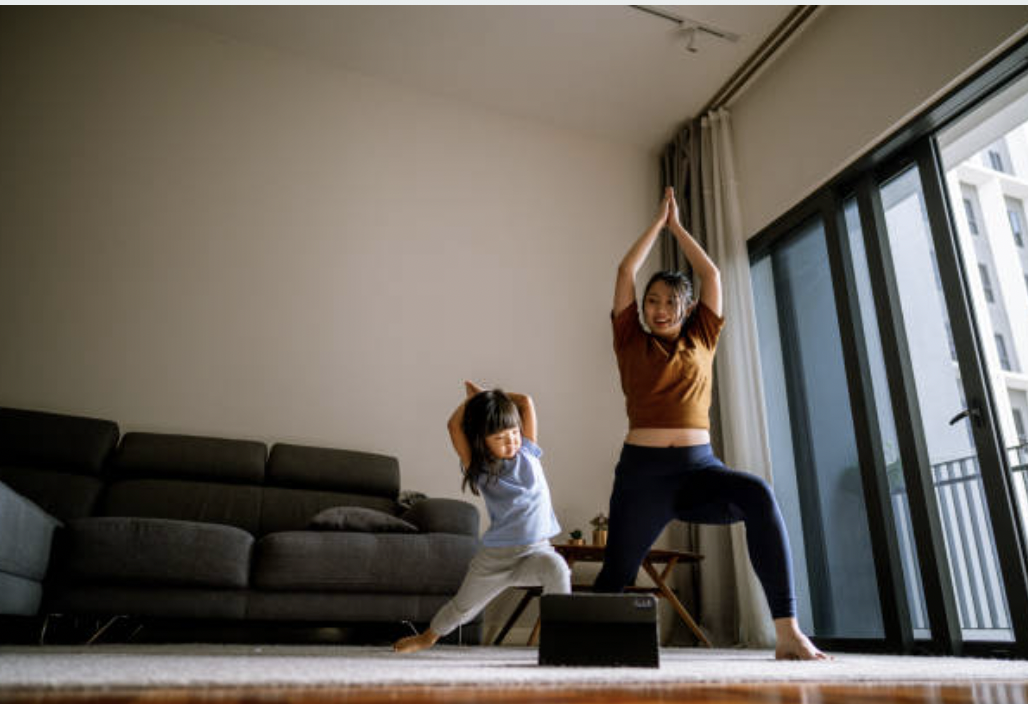Theoretically, you know you SHOULD exercise. You know it’s supposed to be good for you on many levels. But honestly, it just isn’t your thing. You wish you had the motivation and the desire to find a way to make it a part of your life, but every time you’ve tried, it just doesn’t work. If this is you, keep reading, my friend. I hear you, and this blog is for you. First, I’ll break it down and clarify the actual benefits of exercise. Then I’ll discuss the potential challenges. Next, I’ll define the ultimate goal and come up with baby goals that you can work on to help you get there. Lastly, I’ll give examples of how YOU, the non-exerciser, can get the activity level you need for the level of health you’re looking for.
Exercise can be an essential part of a weight loss journey. There are many more benefits beyond just weight loss, though. Exercise decreases the risk of many chronic diseases, such as stroke, high blood pressure, type 2 diabetes, depression, anxiety, and many types of cancer. Exercise also helps improve cognitive function and decreases the risk of death from all causes. Exercise improves mood and enhances energy. People who exercise sleep better, and it can be fun and social.
Additionally, exercise will cause you to sweat, which has many benefits, including flushing out toxins, boosting heart health, improving your skin, and enhancing your immune system. So, yes, exercise is beneficial to your health. You get it, but despite that, you struggle to do it.
The challenges I frequently see with my patients are:
- Not being sure where to start.
- I need help finding the time to exercise.
- I need help finding the energy to exercise.
- I just plain hate it.
Let’s look at the ultimate goal if you are still figuring out where to start. Remember, the ultimate goal is not where we need to start but can serve as a reference point for where we are headed. The American Heart Association recommends 150 minutes of moderate-intensity or 75 minutes of high-intensity exercise per week. In addition, it is recommended that two strength training sessions be added per week. If it seems like a lot, instead of focusing on what you can’t do, focus on what you can do. Could you commit to 5 minutes of exercise 3x per week? Or 60 minutes per week, divided into 10-minute sessions? What about just one session per week?
You should make your initial goal ridiculously easy—a no-brainer. Then, when you accomplish it, celebrate like you are a rock star! Pat yourself on the back and then see if you can increase it slightly for the following week. Here’s the thing. We think we’ll be more likely to get on track if we are hard on ourselves. I find the opposite to be true. If you treat yourself with love, understanding, and compassion FIRST, you are more likely to take care of yourself!
If you struggle to find time, can you get up just a little earlier? I like to take care of myself first before I start my day and take care of everyone else. It’s kind of like saving for retirement. If I wait till the end of the month and save what’s left, often there won’t be anything. The same is true for me and exercise. If I wait until the end of the day after everything else is already done, often there isn’t any energy left. Therefore, I choose to take care of myself first! Another thought is to maximize your lunch hour. Take it even if you can only exercise for 15-20 minutes! It counts and is worth it! If the morning and lunch don’t work, try the evening. If your kids are young, bring them along. Let go of the ideal scenario and figure out what can work instead.
If you struggle to find the energy, recognize that exercise increases your energy by boosting endorphins, improving cardiovascular health, and improving sleep. The key is to start low and go slow. If you overdo it, this will discourage you from ever wanting to do it again because you’ll deplete your energy. Slow and steady wins the race! If you just hate exercise, think about how to make it fun. Grab a buddy. Make it something you enjoy. If you hate running, you never have to run! But what about biking, walking, swimming, hiking, aerobics, or dancing? Try something new. Exercise doesn’t have to be torture. It can be fun!
Consider NEAT
Neat is non-exercise activity thermogenesis. It’s being active without formally exercising. Things like vacuuming, gardening and household chores count! Here are some options for getting 150 minutes of exercise each week. Remember, you don’t have to start here. This is just the long-term goal we are shooting for.
Option A:
- Monday: 20-minute walk
- Wednesday: 30 minutes of vacuuming
- Friday: 50-minute spin class (this counts double since it’s high intensity)
Option B:
- 30-minute walk 5x per week
Option C:
- 30 minutes of lap swimming 3x per week
- 60 minutes of gardening on the weekend.
Don’t forget the strength training! Muscle and bone loss occur with aging. You can protect against this with strength training. This can be done at home with light dumbbells. I recommend hitting each major muscle group at least once a week. Instead of what you can’t do, focus on what you can do. Start with 5 minutes of exercise once per week. Build from there. Pat yourself on the back. You are doing it! Remember, all steps don’t have to be taken forward regarding health. Just take more steps forward than backward, and you will be headed in the right direction. Every single step forward counts. You’ve got this!





